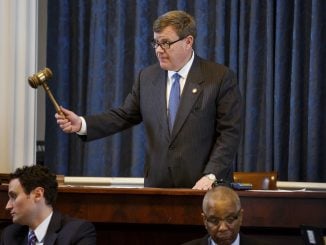
RALEIGH — North Carolina students are reporting improved mental health as they become more physically active, according to the latest results from the 2023 NC Youth Risk Behavior Survey (YRBS).
The new data presented to the North Carolina State Board of Education at its June meeting show positive trends in both mental health and physical activity levels after years of declines.
The percentage of high school students who reported feelings of sadness or hopelessness dropped to 39% in 2023 from 43% in 2021. Among middle school students, 32% reported these feelings in 2023, down from 35% in 2021. Suicidal thoughts and considerations among high schoolers also decreased.
At the same time, more students are getting regular physical activity. Forty-two percent of high school students and 52% of middle school students said they were physically active for at least 60 minutes on five or more days per week in 2023, up from 34% and 44%, respectively, in 2021.
“It is so encouraging to see that students are not only recovering from the effects of the pandemic, but in many cases doing better than they were in 2019 and before,” Deputy State Superintendent Michael Maher said in a release.
The YRBS results align with research showing the mental health benefits of exercise. To further promote physical activity, the State Board of Education is considering an addition to the Healthy Active Children Policy that would encourage high schools to offer 60 minutes of activity time per week and 30 minutes per day for K-8 students. The policy will be voted on in July.
“We’ve heard over and over from school leaders that student mental health is a top priority for them, and it’s a top priority for us at NCDPI, too,” said Ellen Essick, section chief for NC Healthy Schools. “Based on the YRBS data and national research, we believe this addition to the Healthy Active Children Policy will make a positive impact. Students can’t reach their full potential in the classroom if they are not mentally and physically well. Giving them more access to exercise during the school day should ultimately result in better academic outcomes.”
The anonymous YRBS surveys are administered every two years to representative samples of NC students. Questions were pulled from a list created by the Centers for Disease Control and Prevention. This year’s survey also gathered new data on teenage social media use.
Per the press release from the Department of Public Instruction, “More than 80 percent of high schoolers report using social media at least several times a day, and about half of those students say they use it at least once an hour. Middle schoolers access social media a little less, with 63 percent using it at least several times a day.”
The survey also showed the use of vape products, marijuana and alcohol declined for high school students, and that cigarette use remained at “an all-time low of 4 percent.”
The data showed no notable change in prescription painkiller use or bullying.
The Consent Agenda for the board also included the annual report to the General Assembly on school start and end dates.
By law, schools in North Carolina are not supposed to begin school year operations before the Monday closest to Aug. 26.
There are some exceptions to that statute for charter schools, cooperative innovative high schools, lab schools, regional schools, restart schools and the Rowan Salisbury Schools Renewal School District. Additionally, schools with a different calendar that was implemented or planned during 2003-04 are also exempt.
State law dictates that K-12 school district calendars must have a minimum of 185 instructional days or 1,025 hours of instructional hours.
Multiple districts have rebelled against the state-prescribed dates in recent years, and last year’s start and end date report to lawmakers highlighted the issue.
Districts that have not complied with calendar laws in the past year include Cabarrus, Cleveland, Gaston, Iredell-Statesville, Kannapolis City Schools, Lee, Lincoln, Mount Airy, Pitt, Polk, Rutherford, Stanly, Surry, Winston-Salem/Forsyth and Yadkin.
The Carteret County Board of Education adopted an early 2024-25 school calendar to start class on Aug. 13. A group of business owners and parents filed a lawsuit over the start date, and on June 5, Superior Court Judge William D. Wolfe ruled in their favor.
“It is ordered, adjudged and decreed that the proposed calendar for the 2024-25 school year adopted by the defendant and scheduled to begin August 13, 2024 is contrary to statute and is void,” Wolfe’s order states. The ruling also prohibits the district from “adopting or enforcing a school schedule” that does not comply with state calendar laws.



